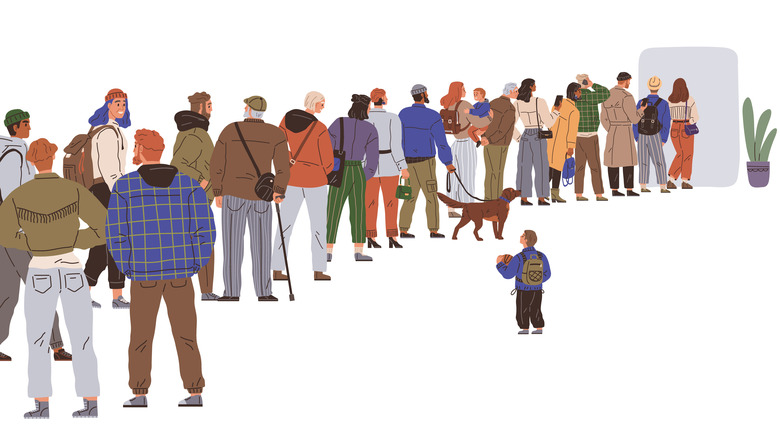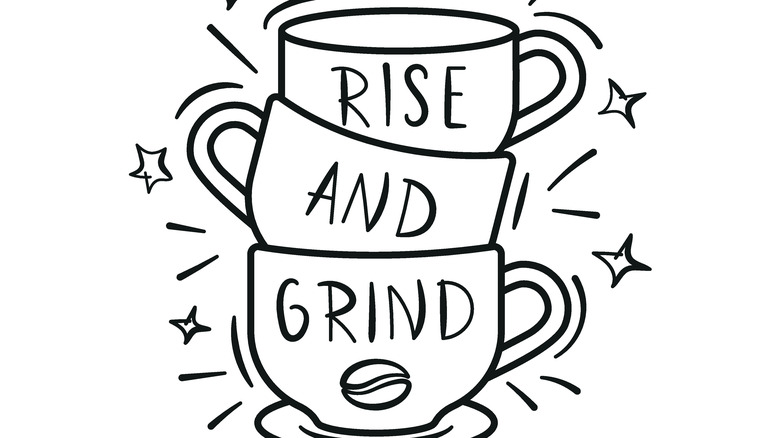Side Hustlers Beware: These Big Lies Are Keeping You Busy And Poor
The infamous side hustle is a thing of beauty when executed to perfection. The modern working individual has understood the concept of the side hustle either explicitly or implicitly since the 1950s, when the phrase entered our economic landscape. But young people in the modern era — Millennials and particularly those in Gen Z—have been dubbed the side hustle generation. 72% of Gen Zers work extra jobs on the side, while the volume of side hustlers overall is booming (although not to the same extent as this subsection of the population).
The allure of a side hustle is enticing, to be sure. The idea that you can spend a few extra hours to create additional income for yourself is a big bonus, especially to anyone hoping to save for their first home, invest for their retirement, or support an active lifestyle that features frequent holidays or expensive hobbies (golf, anyone?). The reality is that procuring a side hustle for yourself and then cultivating a perennial moneymaker isn't all it's cracked up to be. Most side hustlers make a small trickle of additional income, and for plenty of entrepreneurial workers, the added weight of secondary workplace demands can ultimately cause more harm than good. There are plenty of reasons to chase after additional paid work opportunities, but anyone looking to unlock a new side hustle would be wise to go in with their eyes fully open to avoid middling financial results mixed with heavy added burdens.
A side hustle is an easy way to make extra income
Most people who add additional work to their plates are doing it because they need to supplement their income, rather than as a means to introduce "extra" financial mobility. Indeed, finding a side hustle that works for you isn't generally going to be a challenging task, but this doesn't make the work of the matter any easier. One of the biggest lies surrounding the reality of side hustles is that the additional work taken on by individuals is simply a secondary gig rather than a true second job. Whether you are working in a field that you find entertaining or in a role that's strictly financially motivating, this work is unequivocally work.
In the modern job marketplace, workers young and old are seeing their buying power stagnate at an increasingly troublesome pace. With the cost of housing and everyday items continuing to rise untethered from the average consumer's income appreciation, side hustles are growing in importance as a means to continue affording existing lifestyle norms. Housing costs, in particular, alongside expenses like higher education, are driving this change in people's relationship with the employment marketplace. Plenty of college degrees today promise surprisingly low wages and a variety of real estate factors including tremendous demographic realities that see Baby Boomers owning a huge swath of American real estate help drive this unfortunate need.
A unique idea is necessary to launch your operation
One unforeseen upside of the side hustle landscape has worked in favor of those looking to ply their craft outside of routine working hours. While starting a business tends to demand a unique idea or a novel take on an existing product or market, side hustle culture departs from this enterprising reality. The concept of striking out on your own to make it financially no longer means going out on a limb and risking it all. Instead, there are a great many platforms and resources that can help diligent workers find additional income-generating opportunities without having to risk the financial capital of building a brand from the ground up.
Today, people can make their way into all kinds of side hustle opportunities in the gig economy. It's important to vet any platform you may think of working with, however. Not all workspaces are created equal and many will take a cut of the profits you generate as a sort of finder's fee for connecting buyers and sellers. Whether you consider driving for Uber or selling something you've made online, by working through a third party that connects you to your clients you're almost certain to lose a portion of your earnings. Therefore, factoring these costs into the larger picture is crucial.
Passive income requires a major financial commitment
Some looking to establish a side hustle consider chasing the profits of passive income rather than a more straightforward payment-for-service arrangement. Passive income opportunities are certainly a helpful addition but many people get the foundational elements of this approach wrong. At its core, income requires some sort of input. A salary essentially comes as a trade of your time for money. Passive income, on the other hand, can be developed by trading your money's time for more money, as one approach. Investments in the stock market, real estate, or even your own business can produce relatively or completely passive income. Creating a profit level that actually makes a difference will require substantial capital commitments, however.
Other ways to generate passive income don't demand nearly as much of your financial resources. Musicians, for instance, might consider recording some of their productions and uploading them to streaming platforms. Estimates place 10 streams of a song on Spotify at around a four-cent value to the artist. This might not sound like much, but once your music is live on the platform you'll be paid royalties indefinitely without having to manage the product yourself. The same can be said for eBook or blog writers who are paid per download or per click. Passive income creators can add a steady trickle of new money into your accounts, but it's worth noting that the best earnings will be had when you actively work to promote your efforts.
Anyone can earn tons of money on the side with ease
One major lie that side hustle hopefuls are often drawn into is the idea that anyone can earn lots of money on the side with great ease. The age of the side hustle is in full effect and opportunities can be nearly anywhere. However, this doesn't mean that there is an abundance of easy jobs that will rake in the cash. A side hustle can provide a solid new stream of income, but it takes a lot of work to achieve any goal that rises beyond a mere paid hobby. To really make money with your new gig, you'll need to be genuinely good at what you do. No one wants to listen to poorly constructed musical numbers or read grammatically incoherent gibberish.
One of the first keys to a successful side hustle is skill. Whether engaging in something you already do well or quickly learning a new talent that you can monetize, proficiency naturally separates high and low earners to a certain degree. But this isn't the only feature in a successful side hustle. Sometimes even more important than talent is a knack for finding your market's sweet spot. If you are a writer focused on politics, pop culture, or sports, for instance, you'll need to understand what your audience is looking to gain. Generalizations won't do much to improve your bottom line — dig deep into your niche to fully capitalize on the market.
Jumping across multiple income generators is the way forward
Studies continuously point to findings that high net worth individuals prioritize secondary streams of income so much that the golden number for incredible wealth generation is seven. On the surface, it might seem like the takeaway here is to quickly build up one source of income and then move on to another side-hustling opportunity to add yet another string to your bow. But the reality is that this figure collapses a variety of real data points into a bullet point that doesn't reflect the truth. Included in these seven income generators are things like savings account interest, real estate dividends, retirement investment accounts, standard brokerage trading, and of course regular income.
Indeed, for most side hustlers the opposite approach is actually the more valuable opportunity. Taking on one sort of side gig will allow you to incrementally build expertise in the field or marketplace, resulting in the potential for continually increasing earnings. When paired up with solid budgeting principles, rising pay from your side hustle can provide the leverage required to increase investment reserves to chase after a portfolio that ultimately resembles that of the richest Americans around.
Everyone needs a side hustle
It might be easy to suggest that since everyone can take on a side gig everyone should pursue additional income opportunities. A common point of view here is that everyone enjoys at least some downtime between their daily responsibilities and the requisite sleep that caps each day. Some of this downtime can and should therefore be leveraged to earn extra money, right? But pursuing a side gig isn't for everyone, and it's important to weigh the benefits with any potential drawbacks that factor into the larger picture. For one thing, to earn additional money with added work opportunities, you'll need to sacrifice at least a portion of your downtime. This can leave you burning the candle at both ends and perhaps negatively impact your mental or physical health.
Some people will love the ability to work in a new field or novel place to earn a little extra cash. But others are better served by spending this extra time bettering themselves through education or building relationships with loved ones. As well, many people will find the potential a side hustle can provide pales in comparison to the increased salary and other benefits that a change of company or job promotion can offer without having to invest additional downtime.
Side hustles 'stay on the side'
Another common misconception about the side hustle game is that side hustles indeed stay "on the side." It might be tempting to think that your part-time work can be turned on and off like a light switch, but the reality is that one in five workers report the opposite. 20% of side gig employees say that their part-time work interferes with their routine workplace responsibilities. This comes in the form of direct competition for time, and many people often find themselves working on remote freelance tasks during breaks and other periods of downtime during the day to maximize earnings efficiency. This can create a negative impact on your primary job responsibilities, straining your productivity in both roles.
Even if your additional efforts don't encroach directly on your primary workplace responsibilities, the potential for mission creep to take place remains a major threat. By minimizing downtime in order to maximize personal earnings opportunities, you may find yourself becoming increasingly tired or constantly thinking about project due dates that sap your energy or focus. Sacrificing personal time for additional working hours can sometimes create a slippery slope that sees personal time continuously shrink.
Grind culture can see you achieve all your dreams
The idea that simply working harder or longer is the primary driver of achieving the success you're looking for is utterly misguided. Even so, people seeking side hustles often maintain the mentality of just grinding it out. This approach can be helpful under the right circumstances but applying it uniformly is a damaging feature that sadly permeates the side hustle landscape. Grinding through a project deadline in a short burst, for instance, can help you tackle limited runs of increased workloads. The tactic is great in the lead-up to a vacation or some kind of large spending priority that you have set for yourself. However, the idea that workers can grind through pain, fatigue, or hunger regularly is flat-out incorrect.
This harmful mindset leads almost exclusively to burnout and a prolonged downturn in productivity. There just isn't any way for workers to indefinitely prioritize their job responsibilities over many or all of their other lifestyle needs. Sleep, downtime, visits with friends and family, sustenance, and other parts of the human experience are what make work worth it. The work you do is meant to facilitate the lifestyle you want to live, not supplant it. Grind culture revolves around the idea that mental pushback against simply working more is a weakness and can be defeated. But keeping your perspective about the goals a side hustle is meant to achieve is more important.
Quick riches can be found with new technological approaches
Advertisements and influencers discussing side hustles focus on a sort of get-rich-quick scheme. Anyone who has spent time researching side hustle opportunities for themselves will likely be familiar with YouTube and other advertisements that showcase drop shipping methods, Airbnb arbitrage, and other tools that seemingly promise to utilize technological advancements for quick earnings. These ads tend to focus on all the riches that the speaker has amassed, with cars, luxurious homes, and other staples of lucrative finance prominently positioned.
Technology-driven money-making opportunities can be valuable for those with a real knack for the system. Airbnb arbitrage, for instance, relies on an individual's ability to rent a property and then turn around and leverage it as an Airbnb listing. This approach short circuits the need to actually own property when seeking to draw profits from the real estate market but is difficult to pull off. People speaking of these kinds of opportunities rarely go into detail when it comes to the costs and challenges associated. Drop shipping, another feature here, involves the selection of products on Amazon or other platforms that can be purchased from your digital store and shipped directly from the manufacturer, eliminating your need to buy and hold any product at all. Shipping delays and international delivery can severely impact the cost of running this kind of business and may leave buyers incredibly unhappy with delivery and perhaps even the quality of items if you don't pick wisely.
Hustle influencers are cashing in on hope
The people who talk about side hustles the loudest are the ones making serious dollars. It might sound somewhat counterintuitive because those making lots of money through their businesses and side work wouldn't seem to be incentivized to speak about their success. For one thing, writing a book about how you made tons of money or going on YouTube to document your journey would seem to be a waste of time when considering the opportunity cost in trading hours that could actually be doing the thing itself. This is one point of departure where side hustle culture really fails the average worker.
A typical side hustler will make a few hundred dollars a month, on average. This can be a valuable addition to cover routine bills or perhaps even save more if you already have your finances under control. However, the promise of even greater income opportunities that pummels online viewers across platforms is an undeniable siren call. Unfortunately, creating these kinds of "help" or "coaching" programs is actually just another side hustle for the people behind them. These programs may or may not actually provide much assistance to hopeful workers hoping to make it big. Indeed, hope is the key concept in that struggling individuals looking for a breakthrough opportunity are often willing to pay for guidance and inspiration.
Ultimately, more money doesn't equal more happiness
Lastly, it's important to remember that more money doesn't equal an increased level of happiness. A side hustle is designed to add more funding to your budget. This can create more opportunities for spending on hobbies or travel, a budget more readily able to make ends meet, or simply act as a direct line into your savings or retirement account. If you're wildly successful with the task at hand, you may end up creating a lot of extra money for yourself. But this doesn't mean that you should always double down and continue working even more on this project to earn increasingly larger payouts. A side hustle is work just like your regular salaried job, and there will always be a point when taking a step back and enjoying the fruits of your labor is more valuable to you, your loved ones, and your lifestyle than that extra little bit of work.
Pulling away from your side hustle can be a mature and incredibly valuable decision that gifts you back time with family or the ability to focus on passion projects that may not be financially valuable but are no less enriching or enjoyable.











